Doctor en nutrición y producción de Rumiantes de la Universidad Federal de Lavras (Brasil) y Zootecnista de la Universidad de Sucre. Linea de investigación en programación fetal. Interesado en entender como vacas lidan con la restricción nutricional durante la gestación para soportar el crecimiento fetal. Por tal razón he trabajado en conocer los cambios específicos de las matrices durante la gestación, así como los factores que contribuyen al lento crecimiento y desarrollo embrionario. El conocimiento obtenido por medio de está línea de investigación ayudará a los investigadores y/o productores a identificar estrategias e intervenciones de manejo para aumentar la eficiencia reproductiva y mitigar las posibles pérdidas de producción asociadas con las consecuencias de programar la descendencia a través del entorno materno en todas las especies de interes zootecnico. Experiencia también en alimentos y alimentación y producción de bovinos en sistemas silvopastoriles.
PROGRAMA: Medicina Veterinaria y Zootecnia (Cartagena)
CATEGORÍA MINCIENCIAS:
NIVEL DE FORMACIÓN: Doctorado
LINEAS DE TRABAJO:
PRODUCTOS DESTACADOS
Effect of heat stress on ingestive, digestive, ruminal and physiological parameters of Nellore cattle feeding low-or high-energy diets
Fecha de publicación: 05/10/2021
This study aimed to verify the effects of heat stress and dietary energy level on dry matter intake (DMI), water intake, total and partial ruminal and intestinal digestibilities, ruminal characteristics, physiological and digestive behavioral parameters in beef cattle. Six ruminally cannulated Nellore heifers (280 ± 12 kg) were used in a 6 × 6 Latin square experiment with six treatments and six periods of 21 days. The treatments consisted of a 2 × 2 + 2 factorial arrangement, with two temperatures during the day (thermoneutrality, TN: 24°C; and heat stress, HS: 34°C), two dietary energy levels (low- or high-energy concentration) and two additional treatments of animals maintained in TN conditions but pair-fed with the heifers in HS (PFTN). The HS decreased DM intake by about 16% and increase water intake by 25.5% respectively (P ≤ 0.01). Heifers maintained in TN and fed high-energy diet showed 17.3 and 14.3% greater ruminal dry matter (DM) and organic matter (OM) digestibilities compared to their HS counterparts. The DM intake rate (ki, h−1) and digestion rates (kd, h−1) were affected by environment and dietary energy level (P ≤ 0.01), which heifers in HS having lower ki and kd. Heifers in HS presented lower pH and greater ruminal temperature values (P ≤ 0.01). When PFTN treatments were compared vs. HS, there was a significant effect of temperature on acetic acid. Heifers that underwent HS showed 14 % less acetic acid. The ocular temperature, body temperature, heart rate, and respiratory rate were greater in HS heifers (P ≤ 0.01) than in TN. Heifers with low energy level diets showed 33% greater values of rumination time (P = 0.05) when compared to high energy levels independent of the temperatures. We concluded that adaptive response to heat seems important factors responsible for the alteration of DMI, water, and other nutritional fractions like OM, CP, and energy intake. On the other hand, increments in intestinal digestibility in zebu heifers suggest an adaptive response of the digestive tract to heat stress conditions.
Más información ⇨
- « Anterior
- 1
- …
- 5
- 6
- 7
- 8
- 9
- …
- 14
- Siguiente »

